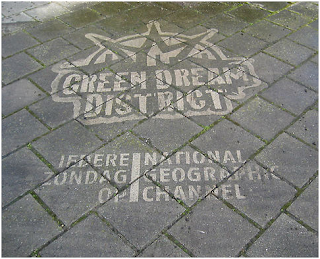 The first Garmin handheld unit that I bought was a GPS12XL and it must have been more than ten years ago. At the time, I remember connecting it to AutoRoute running on a laptop and being amazed while watching the moving map in the car (with all the kit sat on the passenger seat). At the time, it felt like a gadget worthy of James Bond! Today, all that kit comes in a piece of hardware so small that you can attached to your windscreen with a rubber sucker!
The first Garmin handheld unit that I bought was a GPS12XL and it must have been more than ten years ago. At the time, I remember connecting it to AutoRoute running on a laptop and being amazed while watching the moving map in the car (with all the kit sat on the passenger seat). At the time, it felt like a gadget worthy of James Bond! Today, all that kit comes in a piece of hardware so small that you can attached to your windscreen with a rubber sucker!Well, ten years on and I have bought my second Garmin unit (I lent the 12XL to someone and never got it back!). Thinking about it, I have bought a number of devices recently with GPS built in (a car, a camera, a watch), but this is the first (well, second) dedicated GPS handheld that I have bought. And boy, how the technology has improved!
First off, the power up and location time is amazing. No more hanging around, waiting for the device to find it's location. It locates itself in under 60 seconds. No doubt this is longer if you have moved significantly distances between using the unit, but in normal use it is stunningly quick.
Great reception. Even under trees. In open ground, I am frequently picking up 9 satellites simultaneously at full signal strength. Thanks to the responsiveness of the unit, you can see the signal strength dip when under a tree canopy, but this has little effect on the unit (it does seem to reduce the accuracy slightly). With EGNOS enabled, the device's accuracy is usually reported as +/- 2M (under cover this gets reduced to +/- 3M).
Barometric altimeter. You need a signal from at least 4 satellites to be able to provide an estimate of altitude and GPS devices are notorious for not being great at providing height readings. Not too much of an issue if you are using it for marine use, but if you are using it for outdoor activities, this can be much more important. Anyway, the inaccuracy of GPS altitude readings are solved with the 60CSx by using barometric readings instead. These work well and the unit will provide graphic display of the readings (you can also configure the device to use GPS altitude rather than barometric altitude, if necessary).
Great User Interface. I read the quick start guide, played with the unit and then read the instructions. As they say, we all else fails read the instructions! But I haven't needed to with this device. For me, the Garmin UI is becoming like the Nokia UI for mobile phones - the UI that everyone is familiar with and the benchmark against which other devices are compared. The device is very configurable and the software includes functionality for geo caching, parachuting and marine usage.
Great battery life. The unit takes 2 AA batteries and it meant to last up to 10 hours. Well, I have been using mine for about 4 hours and it still displays full battery strength. I suspect that I will get more than the rated 10 hours. When connected via a USB cable, the unit is powered via USB rather than it's batteries which is another neat feature.
Rugged form factor. The device feels great and handles well. The rubber grip around the base of the device makes it easy to use with gloves on and the device looks robust. The unit is water resistant to 1M and the battery compartment has a full gasket. If you are a marine user, you might want to attach a float to it since I suspect it will not float on it's own!
And the downsides.....
Well there aren't that many really and these are more of a nit pick that anything.
The default map is a bit ho hum. This is not a biggie for me since I use it in conjunction with a map. However, the device has great display capabilities and the default map does not do the device justice. Sure, you can buy additional maps (they are installed on the MicroSD card that will be found under the batteries), but it just feels like a missed opportunity.
Is that karabiner loop strong enough? You can see this in the photo and it is just a loop in the soft rubber that covers the top of the unit and aerial. Although the device isn't heavy, I bet that it wouldn't take much to break the karabiner loop. I am not so worried about breaking the loop as I am in losing the device itself.
All in all, a fantastic device and all for around £230. If you are into Geo Caching, then this device has to be on your list.


